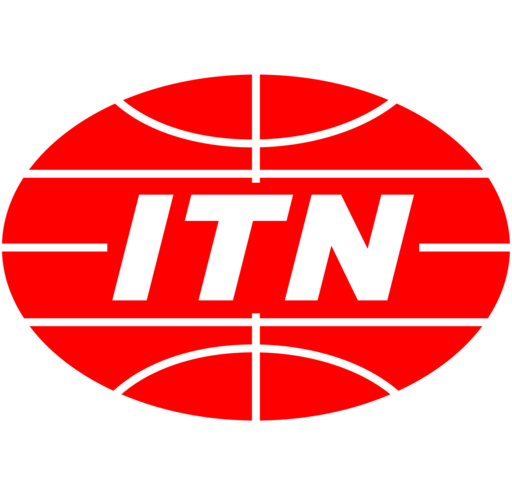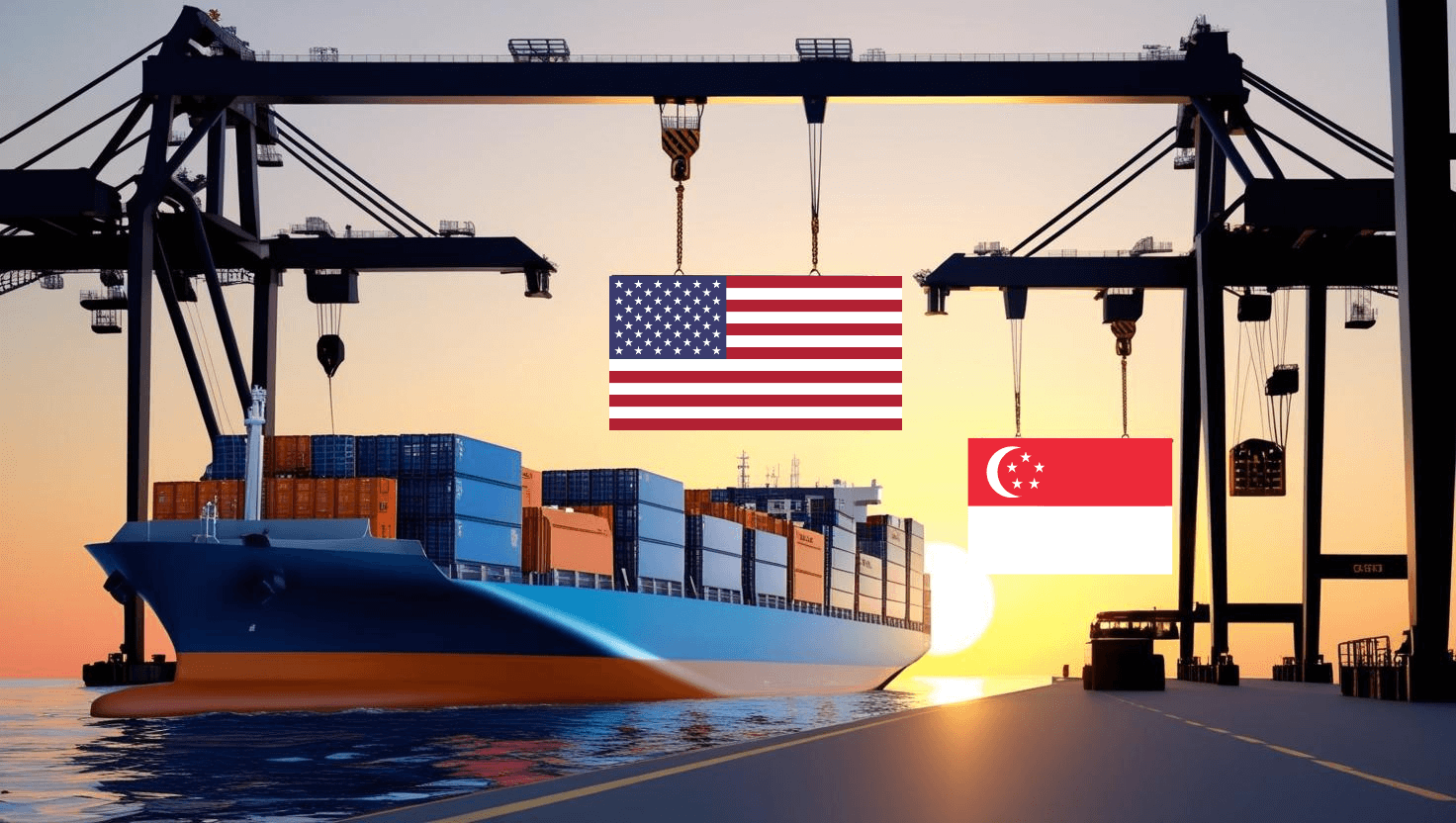Image prompted, generated and edited in Canva
Smart importers are always on the lookout for innovative solutions to cut costs and secure a reliable supply chain. Lately, one product that has caught the eye of US importers is Singapore-made AdBlue®—known generically in the U.S. as Diesel Exhaust Fluid (DEF)—both of which are the same ISO 22241 urea solution.
As of April 5, 2025, all goods imported into the U.S., including those from Singapore, are subject to a universal 10% tariff under the new U.S. trade policy. This policy overrides previous duty-free provisions under the US–Singapore Free Trade Agreement, regardless of accompanying documentation such as a Certificate of Origin.
While Singapore faces this baseline 10% tariff, imports from several other countries are subject to significantly higher rates, making Singapore-made products comparatively more competitive in the U.S. market.
This advantage not only helps reduce overall costs but also ensures a stable supply chain for West Coast businesses.
Let’s dive deeper into how this advantageous trade dynamic is reshaping the market.
Tariff Changes and Their Impact on Asian Imports
In early 2025, the US government updated its trade policy by imposing a 10% baseline tariff on all imports, effective April 5, 2025. However, country-specific surcharges have diverged sharply for certain Asian suppliers:
China-Specific Tariffs:
10 percent baseline tariff, plus:
- 20 percent “supplemental” tariff under Executive Order 14195 (effective March 4, 2025), and
- 34 percent “reciprocal” tariff (effective April 2, 2025), bringing the total to 54 percent on most Chinese-origin goods.
India-Specific Tariffs:
- An additional 26 percent tariff was slated to take effect April 9, 2025—but it has been suspended until July 9, 2025.
- Current rate: 10 percent baseline tariff only.
Vietnam-Specific Tariffs:
- An additional 46 percent tariff (also slated for April 9) is suspended until July 9, 2025.
- Current rate: 10 percent baseline tariff only.
Thailand-Specific Tariffs:
- 36 percent “reciprocal” tariff (slated for April 9) is suspended until July 9, 2025.
- Current rate: 10 percent baseline tariff only.
Note: Tariff rates are current as of May 14, 2025 and may change. Please check for the latest updates when reading.
Singapore-made AdBlue®/DEF is uniquely positioned for the US market, escaping all extra duties and entering at the lowest possible tariff of 10%.
As a direct result, goods made in Singapore are attracting more attention.
May 14, 2025 Update:
- China: retains its 54 percent effective tariff on DEF.
- India, Vietnam, Thailand: surcharges suspended until July 9, 2025, so these goods currently face only the 10 percent baseline.
- Singapore: continues at 0 percent via FTA.
- All other Asian sources: 10 percent baseline until further policy changes.
How the US–Singapore Free Trade Agreement Helps You
The US–Singapore Free Trade Agreement has long offered clear benefits for Singapore-manufactured goods. Under the pact, qualifying products—including AdBlue®/DEF—enter the U.S. at zero percent duty, avoiding both the 10 percent baseline and any extra surcharges now imposed on other Asian imports.
When goods meet the strict rules of origin, they bypass the punitive rates imposed elsewhere (up to 54 percent), ensuring stable pricing and cost savings even as other regions face steep increases due to recent policy shifts.
Why Choose Singapore-made AdBlue®?
If you import AdBlue®/DEF for your West Coast business, this favorable tariff structure not only reduces your overall costs but also stabilizes your supply chain.

From Singapore, you can secure a dependable product backed by both high quality and robust logistics infrastructure. Manufacturers in Singapore adhere to strict production standards, and thanks to the country’s efficient logistics networks, you can count on consistent deliveries.
Hence, by importing AdBlue®/Diesel Exhaust Fluid (DEF) from Singapore, you:
- Lower costs: Pay 0 percent duty versus 10 percent baseline from most suppliers—or up to 54 percent from China.
- Stabilize supply: Rely on Singapore’s robust production standards (ISO 22241) and efficient logistics.
- Ensure quality: Buy a product that meets stringent VDA and international quality controls.
These combined benefits help you maintain a strong market position even during uncertain global trade times.
Key West Coast Ports and Cities
Importing through the US West Coast means you have access to some of the busiest, most efficient ports in the nation. Here are the key ports and the cities they serve:
Los Angeles, California
The Port of Los Angeles is the largest gateway for imports from Asia. It features state-of-the-art container terminals and supports a high volume of trade.
Long Beach, California
Right next door, the Port of Long Beach boasts modern facilities, efficient operations, and strong sustainability initiatives.
San Diego, California
The Port of San Diego serves as a vital hub for both commercial and cruise shipping. Its proximity to major urban areas simplifies last-mile delivery.
Oakland/San Francisco, California
With two interconnected ports, the Oakland and the Port of San Francisco play major roles in handling containerized cargo and reducing inland transport times.
Seattle and Tacoma, Washington
These ports, managed together by the Northwest Seaport Alliance, offer deep-water capabilities and excellent rail, truck, and intermodal links.
Portland, Oregon
Although smaller, Portland’s port on the Columbia River adds an important inland connection for efficient distribution.
How to Import AdBlue®/DEF Smoothly
Importing AdBlue®/DEF from Singapore into the US West Coast can be straightforward if you have the right partners in your supply chain. Here are some actionable tips to ensure a smooth process:
Understand Tariff and Customs Requirements
Verify that your AdBlue®/DEF fully complies with the US–Singapore Free Trade Agreement specifications. Accurate documentation prevents unexpected duties and delays at the border.
Select the Right Port
Choosing the right port can simplify your import process. For high container traffic and state-of-the-art facilities, choose ports like Los Angeles or Long Beach. Alternatively, if deep-water channels and strong rail connections are essential, consider the Seattle-Tacoma area.
Plan for Smooth Logistics
Team up with experienced freight forwarders who excel in managing customs inspections and paperwork. Their expertise minimizes delays and reduces overall risk.
Stay Informed
Trade policies and tariff rates can change rapidly. Regularly consult CBP and USTR notices (especially around the July 9 resumption date for suspended surcharges) to ensure your logistics planning reflects the latest conditions.
Request Your Quotation Today!
Ready to lower your import costs and secure a dependable supply of Singapore-made AdBlue®/DEF for your West Coast operations?
Get a custom quotation for your West Coast imports today—our team will provide tailored logistics solutions designed to streamline your supply chain and keep your costs in check.
References
- https://www.ey.com/content/dam/ey-unified-site/ey-com/en-in/alerts-hub/2025/04/ey-key-highlights-of-the-us-tariff-impact.pdf
- https://www.bloomberg.com/news/articles/2025-04-06/this-is-how-asia-pacific-is-responding-to-us-reciprocal-tariffs
- https://en.wikipedia.org/wiki/US%E2%80%93Singapore_Free_Trade_Agreement
- https://en.wikipedia.org/wiki/United_States_container_ports
- https://www.reuters.com/world/us/us-port-strike-throws-spotlight-big-union-foe-automation-2024-10-04/
- https://www.businesstimes.com.sg/international/global/trump-announces-10-tariff-all-imports-higher-rates-some-countries
- https://www.federalregister.gov/documents/2025/04/14/2025-06378/amendment-to-reciprocal-tariffs-and-updated-duties-as-applied-to-low-value-imports-from-the-peoples
- https://www.whitehouse.gov/fact-sheets/2025/04/fact-sheet-president-donald-j-trump-declares-national-emergency-to-increase-our-competitive-edge-protect-our-sovereignty-and-strengthen-our-national-and-economic-security/
- https://finance.yahoo.com/news/live/trump-tariffs-live-updates-trump-team-sow-confusion-on-reported-exemptions-for-cell-phones-electronics-191201399.html
- https://www.theguardian.com/us-news/2025/apr/13/trump-tariffs-us-economy
- https://www.enterprisesg.gov.sg/grow-your-business/go-global/international-agreements/free-trade-agreements/find-an-fta/ussfta
- https://www.vietnam-briefing.com/news/understanding-the-us-tariff-list-implications-for-vietnam.html
- https://www.investopedia.com/wide-ranging-tariffs-could-complicate-supply-chains-11709471
- https://www.reuters.com/world/us/whats-trumps-sweeping-new-reciprocal-tariff-regime-2025-04-03/


